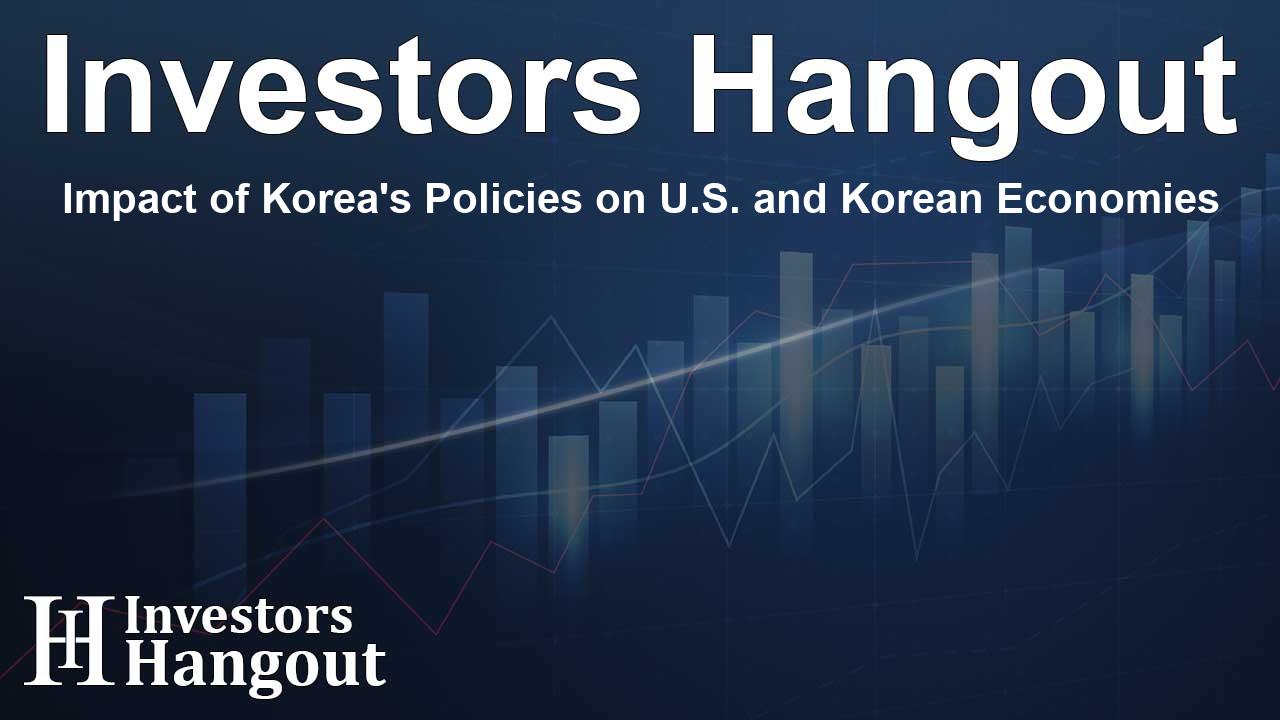Impact of Korea's Policies on U.S. and Korean Economies

Understanding the Economic Impact of Korea's Competition Policies
Recent research highlights significant economic ramifications stemming from Korea's competition policies which predominantly target U.S. firms. The findings suggest that the effects of these discriminatory practices may lead to nearly $1 trillion in economic losses, with the United States expected to bear a substantial portion of this burden.
Projected Economic Losses for the U.S. and Korea
The Competere Foundation has indicated that the U.S. economy could incur losses amounting to approximately $525 billion, primarily due to restrictive measures imposed on American technology firms. These regulations limit the ability of U.S. companies to provide vital services such as e-commerce, social media, and logistics solutions, affecting tech giants like Apple, Google, and Microsoft.
Furthermore, Korea's own economic landscape may suffer as well, with estimated losses around $469 billion. Such figures underline the detrimental impact of regulations that deter foreign investments, particularly affecting micro, small, and medium enterprises (MSMEs) within Korea.
The Role of Regulatory Policies on Market Dynamics
Korea's enforcement of policies through the Korea Fair Trade Commission (KFTC) emphasizes concerns of perceived advantages held by American businesses. These regulations have sparked allegations of bias in favor of domestic companies, seeking to influence market competitiveness unfairly. The KFTC's coercive policies may not only stifle innovation but also restrict a free-market environment, subsequently discouraging investment.
Challenges Faced by American Households
According to the Competere Foundation, the average American household could experience around $3,800 in economic losses over the coming decade due to these policies. This financial burden emerges from higher product prices and limited market choices as competition dwindles.
Implications for Small and Medium Businesses
The repercussions of these anti-competitive policies extend well beyond U.S. and Korean borders, negatively affecting small businesses across the Asia Pacific region. The ability for MSMEs to leverage digital services from U.S. tech providers is crucial for their competitiveness in the global market. However, increased regulation may lead to elevated compliance costs—estimated to exceed $3 billion annually across the APEC region—with Korea alone viewing $512 million in added expenses.
These excessive burdens disproportionately impact smaller firms, potentially jeopardizing their operational viability and inhibiting growth.
Future Possibilities Through Regulatory Reforms
Addressing these regulatory issues presents a unique opportunity for economic rejuvenation and increased foreign investment. Shanker Singham, the President of Competere, anticipates that by reforming these policies, both Korea and the U.S. can enhance their economic landscapes and work towards resolving existing trade disputes.
Strategies for a Fair Market
Korea's transition towards a more equitable approach could stimulate significant economic advantages. Implementing fair competition policies rather than rigid protective measures would benefit both Korean and U.S. companies. It is vital for both governments to come together and formulate strategies that support a balanced marketplace fostering innovation and competition.
Frequently Asked Questions
What are Korea's competition policies?
Korea's competition policies are regulatory measures aimed at overseeing business practices to ensure fair competition. However, these policies often disproportionately affect U.S. companies.
How much economic loss is projected for the U.S.?
Research indicates that the U.S. could face losses around $525 billion resulting from Korea's discriminatory regulations.
What impact do these policies have on small businesses?
Smaller businesses may struggle with compliance costs and restrictions, preventing them from competing effectively in the marketplace.
How can Korea avoid these economic losses?
By revising its regulatory framework to promote fair competition and reduce barriers for American and foreign companies, Korea could potentially reclaim significant economic value.
What is the role of the KFTC?
The KFTC is responsible for enforcing competition laws in Korea, but its current approach may distort the market by favoring domestic firms.
About The Author
Contact Dylan Bailey privately here. Or send an email with ATTN: Dylan Bailey as the subject to contact@investorshangout.com.
About Investors Hangout
Investors Hangout is a leading online stock forum for financial discussion and learning, offering a wide range of free tools and resources. It draws in traders of all levels, who exchange market knowledge, investigate trading tactics, and keep an eye on industry developments in real time. Featuring financial articles, stock message boards, quotes, charts, company profiles, and live news updates. Through cooperative learning and a wealth of informational resources, it helps users from novices creating their first portfolios to experts honing their techniques. Join Investors Hangout today: https://investorshangout.com/
The content of this article is based on factual, publicly available information and does not represent legal, financial, or investment advice. Investors Hangout does not offer financial advice, and the author is not a licensed financial advisor. Consult a qualified advisor before making any financial or investment decisions based on this article. This article should not be considered advice to purchase, sell, or hold any securities or other investments. If any of the material provided here is inaccurate, please contact us for corrections.
